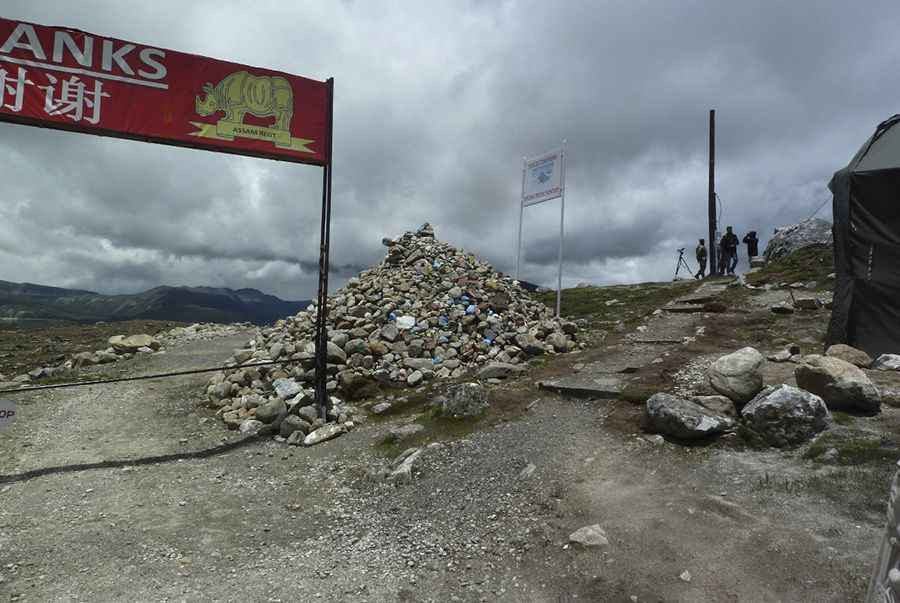Driving the wild road to Bum La in the Himalaya
Bum La is an international high mountain pass at an elevation of 4.508m (14,790ft) above sea level, located on the Indo-China border. The road through the pass has disastrous conditions, and only 4wd vehicles with competent drivers are allowed.

Where is Bum La?
Set high in the Himalayan mountain range, on the LAC (Line of Actual Control) that divides India from China, the pass links India's Tawang district in Arunachal Pradesh and Cona County, in the southern part of the Tibet Autonomous Region in the People's Republic of China.
Can you drive through Bum La?
The challenging road to the summit is mostly paved. The pass is 108.9km (67 miles) long, running south-north from Dungkhar (in India) to Cona (in China). The driver of the vehicle must be an expert in driving on mountain terrain. As you go higher, you will be short of oxygen, and your vehicle may not be your best companion to take you beyond a certain point. Take water, eatables, biscuits, chocolates, and if possible, a thermos with tea, as nothing is available on the way to the summit.
Is Bum La open?
Due to heavy snowfall most of the time, this place remains closed. In winter, it is extremely cold. If you travel by hire vehicle, make sure the driver knows the place very well and is an expert in driving, especially on snow-covered roads. Since the road to Bum La may not be in the best condition throughout the year, the ideal time to visit the place to enjoy its limitless beauty would be from May to October. A special permit is required to visit the pass. The permits can be requested at the Office of the Deputy Commissioner in Tawang District, and the same has to be stamped in the Indian army cantonment of Tawang. Note that without the army stamp, you will not be allowed through the numerous checkposts on the way.
Why is Bum La Pass famous?
The pass was the passage used by the Dalai Lama to escape from Tibet and enter India. The road to Bum La is also a historical route; the Chinese army marched into India during the 1962 Sino-Indian war. In 2006, Bum La was reopened to traders for the first time in 44 years. Traders from both sides of the pass were permitted to enter each other’s territories, in addition to postal workers from each country.
Pic: By Tabish q - Clicked on a trip to Bumla Pass in June 2013, CC BY-SA 3.0, https://commons.wikimedia.org/w/index.php?curid=26966747